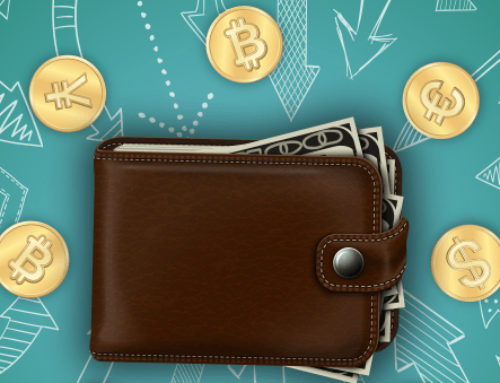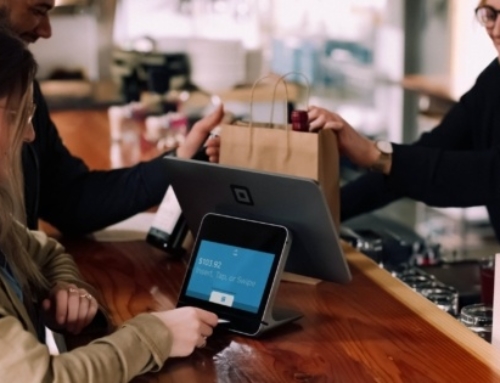As the trend of adopting crypto is rising, issues related to crypto are also increasing. Like in past debates related to the new economy, the use of energy and its impact on the environment during the mining of crypto was and still is the subject of a big debate. Some organizations addressed this issue by developing new mining techniques and renewable energy sources. There’s a new recent debate trending these days about the use of unhosted wallets.
What are unhosted wallets?
Unhosted wallets are a type of self custody wallet that lets users keep their cryptocurrency balances off of any exchange or any third party. It’s like keeping money in your own pocket wallet where you are the only controller of your own money. They are usually hardware wallets like Ledger or Tresor, or self custody wallet apps or software. The wallets of exchanges like Binance, Coinbase etc. are all hosted wallets. The wallet acts as a bridge between the user and the blockchain. They are totally decentralized and offer full freedom to their users.
Either hosted or unhosted, cold storage or offline wallets are the best options to store your cryptocurrency in the safest way for long periods of time.
Issues regarding un-hosted wallets
The FATF (Financial Actions Task Force) and FinCEN (the Financial Crimes Enforcement Network) are highly concerned about unhosted wallets. FATF gave them advice in 2019 and FinCEN told them to send in all transaction data reports.
The reason behind all this is that, as explained, there is no third party involved in it. No KYC (know your customer) is needed on these wallets. It means anyone can create an account with them by keeping their identity hidden. Because of this, it’s impossible to track transactions. Who made this transaction and from where? It’s the same as using cash for payments or keeping cash in a safe.
The new possible imposition to most common exchanges would be to verify the identity of every individual behind an unhosted wallet that has any transaction greater than 1,000 euros, or $1,100, reporting it to the authorities. Stating his opinion about this, Coinbase CEO Brian Armstrong said “Imagine if the EU required your bank to report you to the authorities every time you paid your rent merely because the transaction was over 1,000 euros,”
Another issue regarding unhosted wallets is the private keys. If a person creates an account on any of these wallets, he must remember his 12-digit private key. If you lose your private key, you will be unable to access your crypto. And also, if anyone gets access to your private key, then your crypto is also in their hands.
Why a cold wallet is the safer way to store crypto?
Merely because a cold or offline wallet is not accessible via the internet when they are turned to keep offline. These types of wallets allow the user to store their address and private key without necessarily being connected 22/7 to the internet, which leaves customers open to being hacked at any time. They typically have software that works in parallel so that the user can view their portfolio without putting their private key at risk. An example of this type of wallet is the Monetum Wallet.
Quoting Cryptonews about the safety of your assets, you can find here some of their recommendations:
- Be Aware Of Phishing Sites. Whether you are connecting to an exchange or online wallet, confirm that you are logging in to the right address. Many bogus websites imitate exchanges for the sole purpose of stealing your login data. Always check whether the website address is correct.
- HTTPS. Login only to secure websites with a valid HTTPS certificate. Most legit sites have one. For extra safety, try browser plugins like HTTPS Everywhere.
- Use a Secure Wi-Fi Connection. Never connect to your online wallet, exchange account, or another critical security point via public WiFi. Even when you are at a presumably safe place, make sure your WiFi access point uses strong encryption like WPA-2 protocol.
- Separate Your Funds. Don’t keep all your crypto assets in one place. The best way to handle it is by using one or several cold storages for long-term holdings, and at least one hot wallet for trading and transactions.
Benefits of Using Unhosted Wallets
As the landscape of cryptocurrency evolves, the dialogue surrounding its use and implications broadens. Amidst discussions on energy consumption and environmental impact, a new focus has emerged on the utility and benefits of unhosted wallets. These wallets, emblematic of decentralization, offer a compelling array of advantages for users valuing autonomy, security, and privacy in their digital transactions. Here, we explore the benefits of using unhosted wallets:
Enhanced Security
Unhosted wallets provide a higher level of security compared to their hosted counterparts. By enabling users to store their cryptocurrency offline, these wallets are less susceptible to hacking attempts and unauthorized access. This offline storage method, known as “cold storage,” significantly reduces the risk of theft from online breaches.
Full Control Over Assets
One of the fundamental advantages of unhosted wallets is the complete control they offer over one’s digital assets. Users are not reliant on third-party services or exchanges to manage their funds, thereby eliminating the risk of external parties freezing or mismanaging their assets. This autonomy ensures that users can manage their cryptocurrencies according to their personal security protocols and investment strategies.
Privacy and Anonymity
Unhosted wallets operate without the need for personal identification or KYC (Know Your Customer) processes. This feature is particularly appealing for users who prioritize privacy and wish to conduct transactions without revealing their identity. The absence of a central authority in the transaction process ensures a higher degree of anonymity, akin to using cash in the digital realm.
Avoidance of Regulatory Constraints
The decentralized nature of unhosted wallets means they are less likely to be affected by regulatory constraints that can impact hosted wallets and exchanges. This freedom allows users to execute transactions without the potential delays or limitations imposed by regulatory compliance, offering a smoother and more efficient transaction experience.
Direct Interaction with the Blockchain
Unhosted wallets facilitate a direct connection between the user and the blockchain, enabling more transparent and straightforward transactions. This direct interaction ensures that users can engage with smart contracts, participate in decentralized finance (DeFi) platforms, and access other blockchain-based applications without intermediaries.
Reduced Transaction Costs
By eliminating the middleman, unhosted wallets often result in lower transaction fees. This reduction in costs is particularly beneficial for users who frequently execute transactions or move large sums of cryptocurrency, as it can lead to significant savings over time.
Recovery Options
Although losing access to a private key can result in lost assets, many unhosted wallets offer seed phrases as a recovery mechanism. This feature allows users to regain access to their funds even if they lose their private key, provided they have securely stored their seed phrase.








